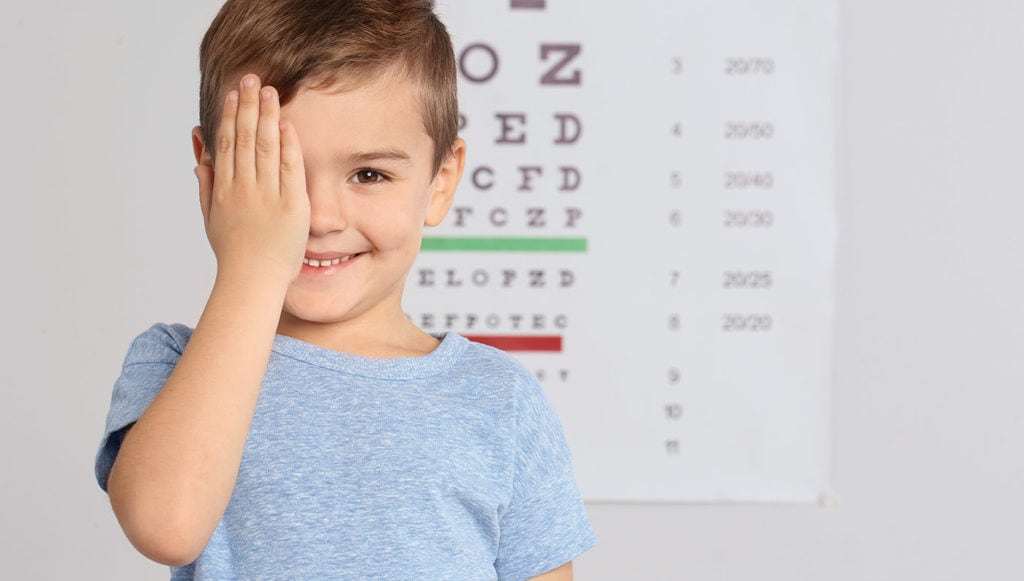Dyslexia
What is Behavioral Optometry?
You may not be aware of it, but your visual system brings you much information about your world. When you look at something, you don’t just “see” with your eyes; you inspect, discriminate, identify and interpret ‐ all as a part of your visual system.
Behavioral optometry is an expanded area of optometric practice. When you visit your behavioral optometrist, you may notice a difference in your examination.
You will find that you are tested for specific visual skills. You may find that many of your questions about vision are answered. And you will receive the clinical guidance you need to develop the skills that provide for an efficient visual system.
Why Behavioral Optometry?
Our ancestors had hunter’s eyes for survival in the wilderness; their vision was designed for spotting game and enemies at a distance.
In the last 100 years, we have been forced to deal with sustained, near visual tasks and the resulting stress on the visual system has produced many symptoms and problems.
If you experience headaches, blurred vision, tired, itchy or watery eyes or other vision linked problems, you may already know how uncomfortable sustained visual stress can feel. Your discomfort may be related to the heavy vision load of working at near distances.
If you are a student, you may read almost three times the number of textbooks your grandparents did. If you are employed in an office, you probably use your visual system for hours of close‐up work. If you work with computers, you may spend much of your day looking at a computer screen. These tasks can all contribute to visual stress.
Even if you have “20/20 eyesight,” you may have difficulty working at close tasks. The term “20/20” means you can see well at distances of 20 feet or more, it does not usually refer to how well you see at 12‐16 inches, the distance at which you do most of your close work.
Make Learning Easier For Your Child
The Visual Edge Slant Board, the ultimate learning tool.
Learn More
There is a solution
Your behavioral optometrist has studied the effects of stress on vision. Through the use of carefully selected stress‐relieving and preventive lenses and visual training, you can enjoy relief from even the most stressful close‐up visual conditions.
More About Behavioral Optometrists
Your behavioral optometrist takes a holistic approach to vision care. You are treated as a whole person and your visual problem as a part of the whole system. Your behavioral optometrist works with you and your children, rather than doing something to you.
You and your children will receive help in developing the important visual skills you may need to reach academic and professional goals.
Even the visual achievement of successful learners and earners can be enhanced through behavioral optometric care.
Who Needs a Behavioral Optometrist?
Behavioral vision care is useful to virtually all patients. However, the following individuals will especially benefit:
- Children of all ages, but especially children just starting school.
- Children who are having trouble with reading or learning.
- Children who seem to be uncoordinated in visually demanding sports.
- Children who are considered “behavior problems”
- Children who are reading “below their potential.”
- Anyone who participates in athletics and wants improved performance.
- Anyone who works at a computer.
- Anyone who has a visually demanding job.
- Anyone who suffers from burning, itchy eyes, eyestrain or visual fatigue (with no medical eye problem).
See your family optometrist annually.
More Good News… If your behavioral optometrist prescribes visual training (also called vision therapy) for you, and even if your medical insurance does not cover eyeglass prescriptions, your major medical may cover visual training.
Visual training often falls under the category of physical therapy. It usually involves a series of visits during which you perform specific activities to remediate your vision problem under the close supervision of a professional.
The office staff can help you determine if your policy covers visual training and with their help, you can submit the proper claim and receive entitled benefits.
What is a Behavioral Optometrist?
Behavioral optometrists spend years in post-doctoral education to master the complex visual programs prescribed to prevent or to normalize ‐visual problems and enhance visual performance. Behavioral optometry is an umbrella term that also includes developmental and functional optometric practices. Not all optometrists practice behavioral optometry. To find one who does, call or write Optometric Extension Program Foundation Vision Extension. If you do not now visit a behavioral optometrist, call or write the OEP Foundation for a referral list in your area
Optometric Extension Program Foundation, Inc.
1921 E. Carnegie Ave., Ste. 3‐L
Santa Ana, CA 92705‐5510
(949) 250‐8070
Pamphlet Copyright © 1984, OEP Foundation, Inc. ‐ A nonprofit foundation for education and research in Vision
Permission to reprint the contents of this brochure granted to VISUAL EDGE, INC ® ‐ 05/01/09 by: the Optometric Extension Program Foundation, Inc.

